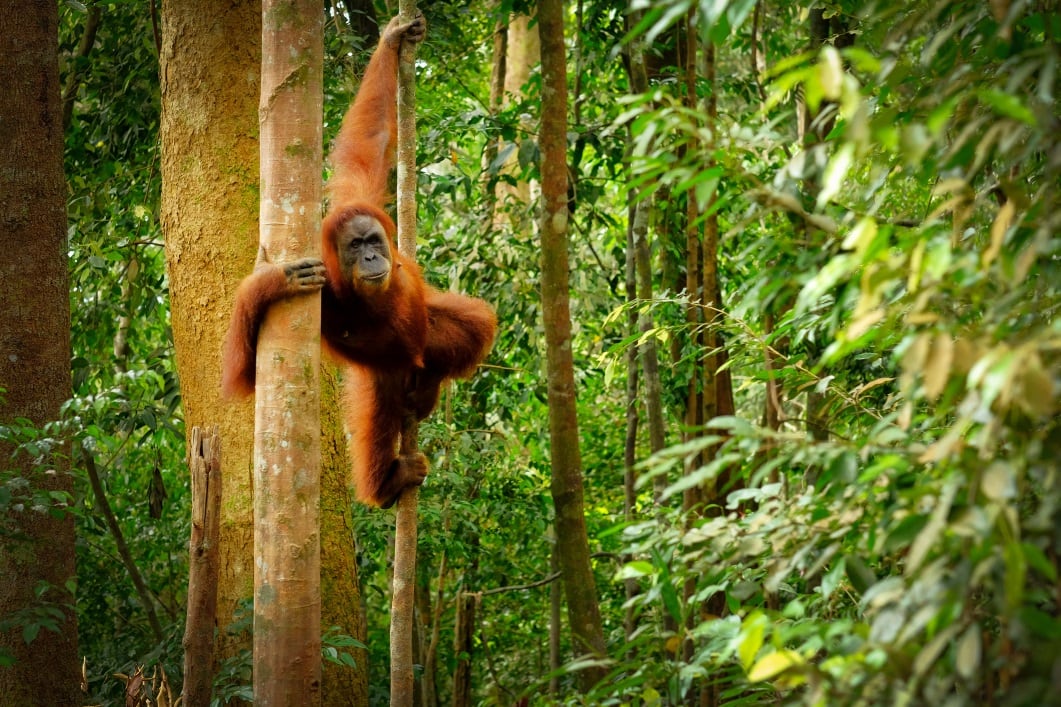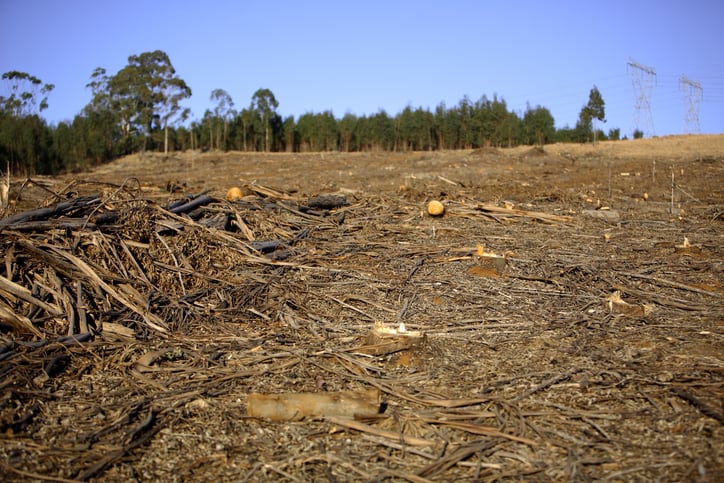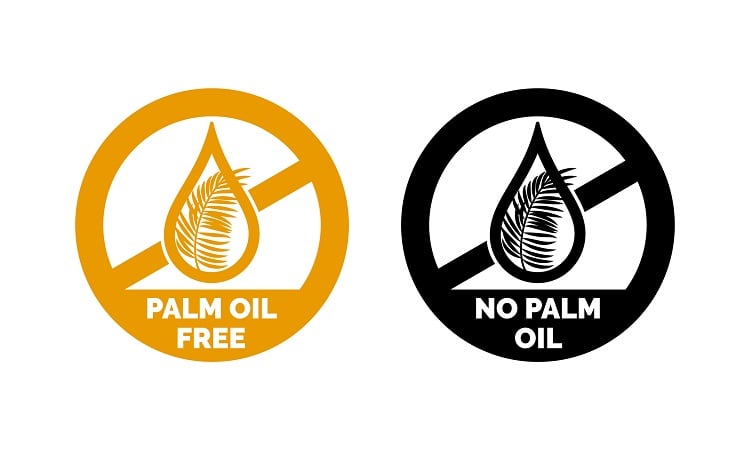Europe’s deforestation is largely associated to the agricultural commodities it imports as food and feed – from palm oil and soy to beef and paper for packaging. This ‘imported deforestation’ is largely invisible to European consumers due to the opaque nature of supply chains.
Nevertheless, as one of the largest consumer markets in the world, European shoppers are responsible for about 10% of the global impact on tropical forests. The EC was therefore accurate in its assessment: “This is not somebody else’s problem”.
“The main drivers of this deforestation are demand for food, feed, biofuel, timber and other commodities," noted the Commission.
The need to tackle deforestation is particularly pertinent in light of commitments to reduce greenhouse gas emissions under the Paris Agreement on climate change.
An area of 1.3 million square kilometers of forest lost between 1990 and 2016, equivalent to approximately 800 football fields every hour.
Deforestation is responsible for almost 12% of global emissions, according to the International Panel on Climate Change (IPCC), and half of this is linked directly to agricultural commodities. If deforestation were a country, it would be the world’s third largest emitter of climate warming greenhouse gases.
This means that acting on deforestation is an important opportunity. Tropical forests alone account for around 30% of the global mitigation action needed to halt climate change.
“Forests are the green lungs of our planet, and we must care for them in the same way we care for our own lungs. We will not meet our climate targets without protecting the world's forests,” First Vice-President responsible for sustainable development Frans Timmermans stressed.
‘We are stepping up action’
In its communication this week, the EC outlined five priorities with a ‘comprehensive’ set of actions. These included commitments to:
- Reduce the EU’s consumption footprint and encourage the switch to deforestation-free supply chains;
- Partner with producing countries to reduce pressures on forests and ‘deforest-proof’ development cooperation;
- Strengthen international cooperation to halt deforestation and forest degradation, and encourage re-foresting efforts;
- Redirect finance to support more sustainable land-use practices;
- Support the availability of, quality of, and access to information on forests and commodity supply chains, and support research and innovation.
Vice-President Jyrki Katainen, responsible for jobs, growth, investment and competitiveness, said that the communication signals Europe is ‘stepping up’ to address the challenge of deforestation.
“We are stepping up EU action to protect existing forests better and manage forests sustainably. When we protect existing forests and increase forest cover sustainably, we safeguard livelihoods and increase the income of local communities. Forests also represent a promising green economic sector, with the potential to create between 10 and 16 million decent jobs worldwide,” Katainen suggested.
The Commission’s proposals include the exploration of further regulatory measures on imported deforestation, the establishment of a new multi-stakeholder platform on deforestation and forest degradation and a focus on partnering with producer countries to scale up improved land governance.
Timmermans added that the EU was demonstrating global leadership on the issue.
“Today we send an important signal to our citizens and to our partners around the world that the EU is prepared to play a leadership role in this area in the next five years, and beyond.”
Policy and investment needed
NGOs roundly applauded the spirit of the announcement. But, as Han de Groot, CEO of the Rainforest Alliance, noted, while this is a significant moment ‘it is just one step’ towards the comprehensive action that is needed.
“The EU must energize and empower its constituents to translate these commitments into concrete action,” he suggested.
Henriette Walz, deforestation lead for the Rainforest Alliance, added: “The EU correctly identifies changing agricultural consumption patterns and partnering with producing countries to improve forest governance as tackling the root caused to deforestation. Both transparency on voluntary no-deforestation commitments and exploring regulatory measures are key steps to driving out deforestation from the EU imports by 2030.”
While the Commission has acknowledged the role its trade and agricultural policy plans in deforestation, Greenpeace campaigners stressed that this has not been translated into a significant change of policy direction, pointing to the recent EU-Mercosur agreement, which will open up European markets to agri-food products from Brazil, Argentina, Uruguay and Paraguay. This, Greenpeace said, will likely lead to increased imports of commodities such as soy, palm oil, beef, coffee and cocoa – all of which are driving deforestation in Latin America.
“This Commission is well aware of the EU’s role in global deforestation, but lacks the political courage to call into question its trade and farming dogmas. Access to new markets for a handful of multinationals cannot outweigh the ecological, climate and human cost of trade deals like the EU-Mercosur agreement. The next Commission must show that its commitment to stand up for human rights and tackle the ecological and climate crisis is not just skin deep," Greenpeace EU legal expert Andrea Carta said.
Greenpeace called on the incoming Commission to urgently table new laws to ensure that products placed on the EU market are no longer linked to deforestation, forest degradation, or human rights violations, and that the EU financial sector does not underpin this.
If policy is one important area that the EC needs to translate its rhetoric into action, investment is the other.
Conservation International Europe vice president Herbert Lust suggested that Europe must target its investment into areas that combat deforestation and provide support to reforestation efforts and indigenous peoples.
“We need to invest our euros to make this communication real. This legislation represents the kind of bold global leadership that Europe excels in, but it is moot without investment.
“The European Commission needs to look at funding actions that preserve forests and counter deforestation, including funding reforestation efforts and investing in community conservation projects. In addition, they must invest in funds for indigenous people — stewards who manage 25 percent of the world’s above-ground carbon in tropical forests and who are essential to protecting these vital ecosystems.”




